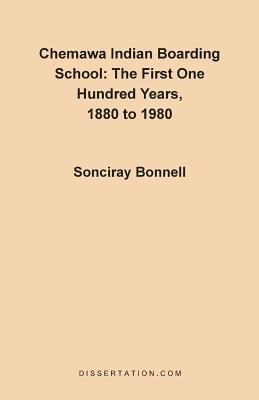
- We will send in 10–14 business days.
- Author: Sonciray Bonnell
- Publisher: Dissertation.Com. - Do Not Use
- ISBN-10: 1581120036
- ISBN-13: 9781581120035
- Format: 14 x 21.6 x 1 cm, minkšti viršeliai
- Language: English
- SAVE -10% with code: EXTRA
Reviews
Description
This study presents interviews with American Indian/ Alaska Native alumni who received some or all of their elementary and high school education at the Chemawa Indian Boarding School in Salem, Oregon between 1917 and 1985. A brief summary of Indian history, in particular Indian education, is presented as the context for many of the changes that occurred at Chemawa during its first one hundred years. The purpose of this study is to examine Chemawa alumni recollections of Chemawa within an imposed educational system.
My research process included library and archival research, academic classes and personal interviews. I interviewed alumni who had attended Chemawa between 1917 and 1985. Themes such as academics, vocational training, social life and general impressions of Chemawa are categorized in the different eras and serve as the body of the thesis.
Despite negative stereotypes of federal Indian boarding schools, the majority of Chemawa alumni interviewed for this thesis hold Chemawa in high regard. For many students Chemawa was an alternative to an orphanage, a respite from a dysfunctional family situation, an opportunity to gain an education and or vocational skills, or an opportunity to be with other Indians. Across generations, at least half of the students considered Chemawa's academic program inadequate; over half of the students interviewed found the vocational training, when it was available, to be very useful. Though most students acknowledge the downfalls of Chemawa, most alumni interviewed tended to overlook the negative and promote the positive.
Alumni were able to view Chemawa in a positive light because students molded their boarding school experiences to fit their needs. Students created their own families (friends), community (school) and resisted the institutional suppression of Indian boarding schools. As young people, many adapted their situation to suit their needs, regardless of any negative experiences they might have encountered at Chemawa.
EXTRA 10 % discount with code: EXTRA
The promotion ends in 21d.13:20:26
The discount code is valid when purchasing from 10 €. Discounts do not stack.
- Author: Sonciray Bonnell
- Publisher: Dissertation.Com. - Do Not Use
- ISBN-10: 1581120036
- ISBN-13: 9781581120035
- Format: 14 x 21.6 x 1 cm, minkšti viršeliai
- Language: English English
This study presents interviews with American Indian/ Alaska Native alumni who received some or all of their elementary and high school education at the Chemawa Indian Boarding School in Salem, Oregon between 1917 and 1985. A brief summary of Indian history, in particular Indian education, is presented as the context for many of the changes that occurred at Chemawa during its first one hundred years. The purpose of this study is to examine Chemawa alumni recollections of Chemawa within an imposed educational system.
My research process included library and archival research, academic classes and personal interviews. I interviewed alumni who had attended Chemawa between 1917 and 1985. Themes such as academics, vocational training, social life and general impressions of Chemawa are categorized in the different eras and serve as the body of the thesis.
Despite negative stereotypes of federal Indian boarding schools, the majority of Chemawa alumni interviewed for this thesis hold Chemawa in high regard. For many students Chemawa was an alternative to an orphanage, a respite from a dysfunctional family situation, an opportunity to gain an education and or vocational skills, or an opportunity to be with other Indians. Across generations, at least half of the students considered Chemawa's academic program inadequate; over half of the students interviewed found the vocational training, when it was available, to be very useful. Though most students acknowledge the downfalls of Chemawa, most alumni interviewed tended to overlook the negative and promote the positive.
Alumni were able to view Chemawa in a positive light because students molded their boarding school experiences to fit their needs. Students created their own families (friends), community (school) and resisted the institutional suppression of Indian boarding schools. As young people, many adapted their situation to suit their needs, regardless of any negative experiences they might have encountered at Chemawa.


Reviews